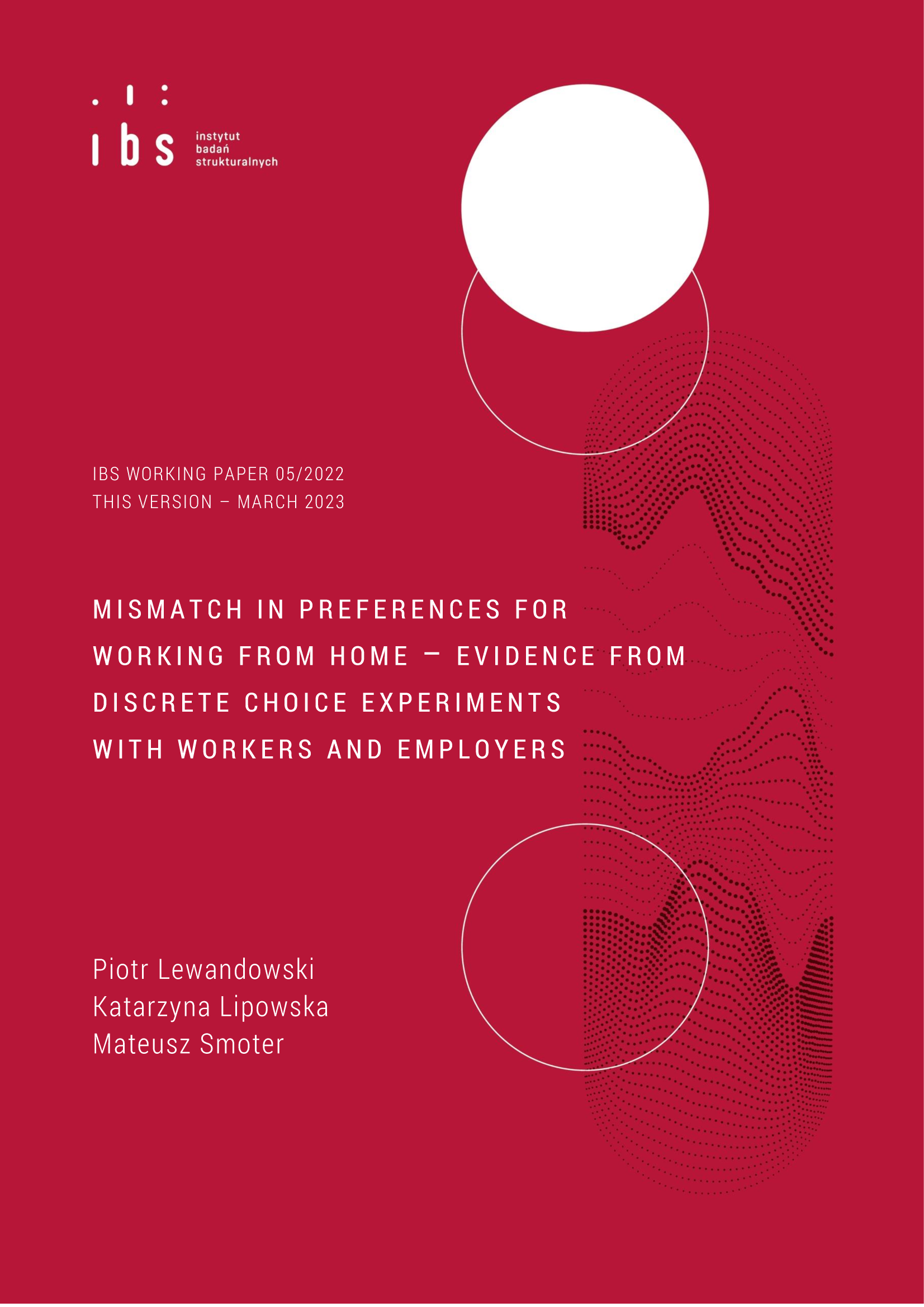We study preferences for remote work using a large-scale discrete choice study with 10,000 workers and 1,500 employers in Poland. Workers value remote work more than employers. On average, workers are willing to sacrifice 2.9% of earnings for remote work, with hybrid work from home (WFH) for 2-3 days (5.1%) preferred over 5 days (0.6%). Employers expect a 21.0% wage cut from remote workers. This 18 pp gap between employers’ and workers’ valuations reflects employers’ concerns over productivity loss (14 pp) and effort to manage remote workers (4 pp). Only 25-36% of employers with positive perceptions of remote work productivity show valuations of remote work that align with workers’ willingness to pay for it.

This paper uses Statistics’ Poland Labour Force Survey data. Statistics Poland has no responsibility for the results and the conclusions, which are those of the authors.

